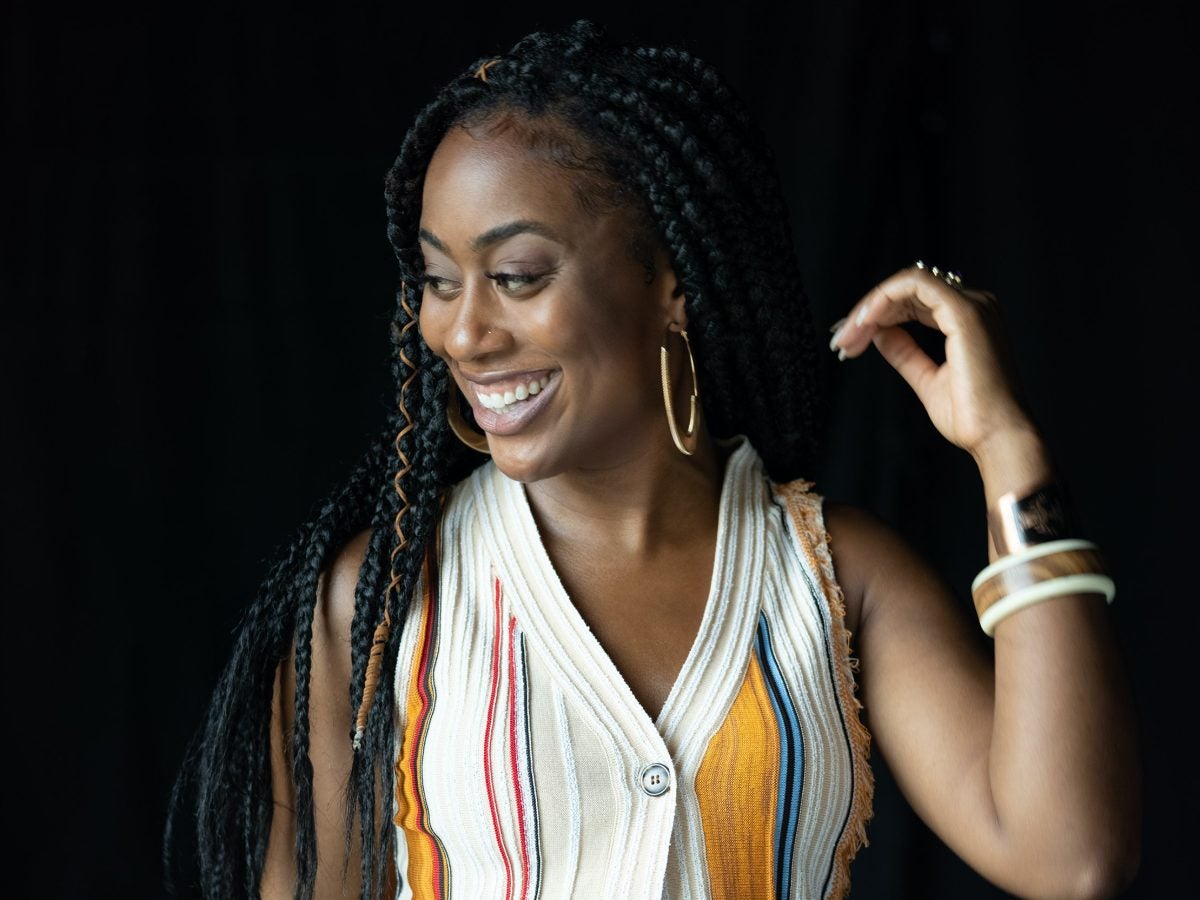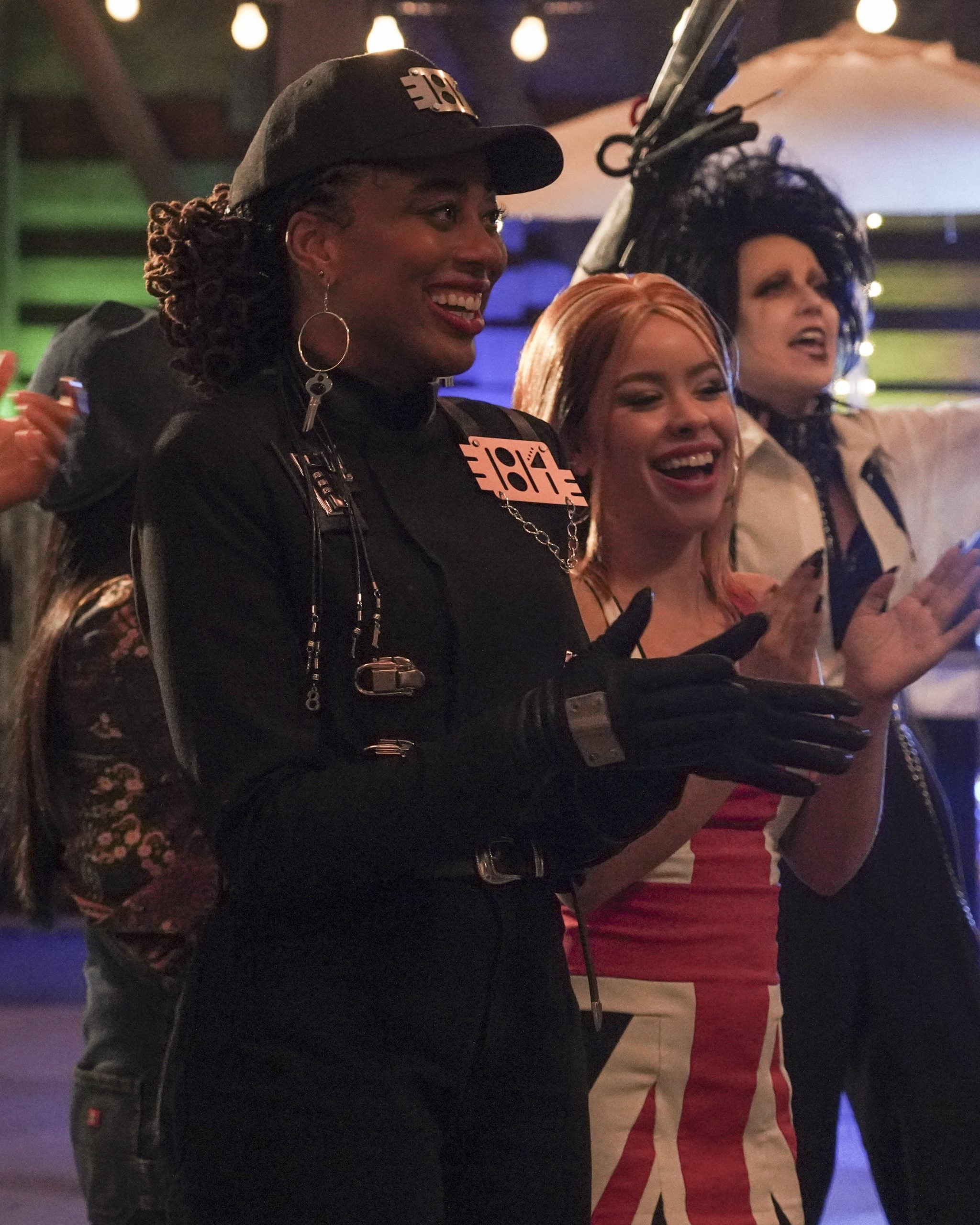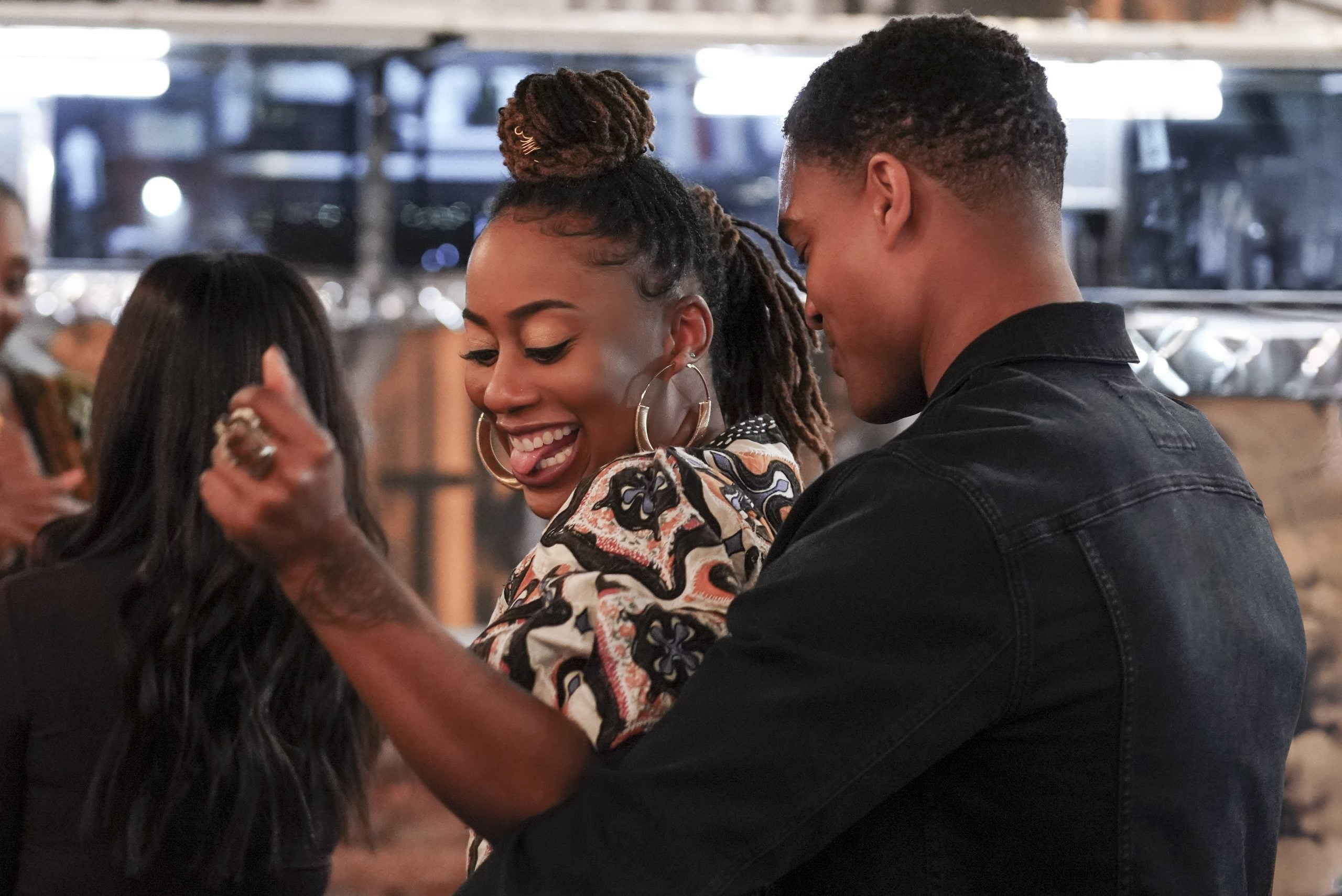
Art typically imitates and informs life. In Zuri Adele’s case, imitation and information go in both directions.
On Freeform’s hit show Good Trouble, Adele portrays Malika Williams, a headstrong social justice enthusiast from a scarred childhood. A spinoff of another hit teen and family program, The Fosters, Good Trouble is a snapshot of the intertwined lives and dramas of millennials from different walks of life converging in downtown Los Angeles. Each experiencing their own separate fights for liberation, they find solace in each other as a chosen family.
Malika, a former foster care kid and current activist, modeled after BLM co-founder Patrice Cullors, mirrors Adele’s own personal passions for Black liberation and sharing stories and perspectives that pay respect to the trials and tribulations our people experience today.
“When I read this script for the audition, I was really excited to feel so seen and to use my voice and body to tell this story,” Adele said. “Absolutely this is the only way that I want to be using my gift – a way that makes an impact and a way that feels ancestral. I will be a storyteller, a griot. I carry that responsibility very seriously, to tell the ancestral truth through my voice and body.”

A Spelman grad and former acting instructor at both the Oprah Winfrey Leadership Academy for Girls in South Africa and UCLA’s School of Theater, Film and Television, Adele has dedicated her gift to work in service to Black creatives and Black stories. As such, she feels that the show is a perfect match for her, and an amazing opportunity to speak to issues that affect many that many others don’t fully understand.
This season, the show covers a LOT of ground and examines multiple perspectives of each issue which Adele finds extremely gratifying.
“I’ve been really excited this season in particular, to highlight the needs of unhoused people, to highlight the everyday lives and needs of people who identify as bisexual and also people who identify as polyamorous and consensually nonmonogamous,” she said. “I have also been really excited to dive deeper into the needs of people who are impacted by incarceration. Just uplifting and uprooting all of the various systems that need to be addressed.”
Naturally, such hot button topics are sometimes a tough pill for certain viewers to swallow, in particular critics of the “new age” of social justice, political correctness, and mainstream recognition of once-fringe lifestyles and identities. But Adele sees the show as a medium to teach.

“Often there can be feedback that this type of work, show, and storytelling can feel really trendy or ‘on the nose’. And, my response to that is we are covering a lot of bases in one show. Also, we know that this is the capacity that the audiences we want to reach and those whose minds we want to change and expand have to digest this type of information,” she explained. “This is how we cover a lot of ground, and this is how we reach people and sort of sneak the message in sometimes to people who may not want to confront these systems that we are actively taking down.”
While teaching others, Adele has found that she herself learns a lot through the show’s scripts and embodying Malika’s storyline.
“In particular, through my character’s storyline, I’m learning so much more about polyamory and about various love styles, about consensual nonmonogamy,” she said. “I’m learning that in a very compassionate way. And, I’m learning more and more about bisexuality. Even as a bisexual person [myself], I’m loving seeing Malika’s perspective on navigating her bisexuality and how it differs from mine and how it compliments mine. And I’m loving the way that we are able to explore that bisexuality without the fetishization of women, particularly Black women, non-white women.”
“We’re able to do a lot of impactful storytelling through what we’re doing,” Adele says of her castmates and crew. “Good Trouble is like my soulmate. Good Trouble sought me out. I think we sought each other out. Now I’m even more affirmed that this is the way that I want to use my gifts.”